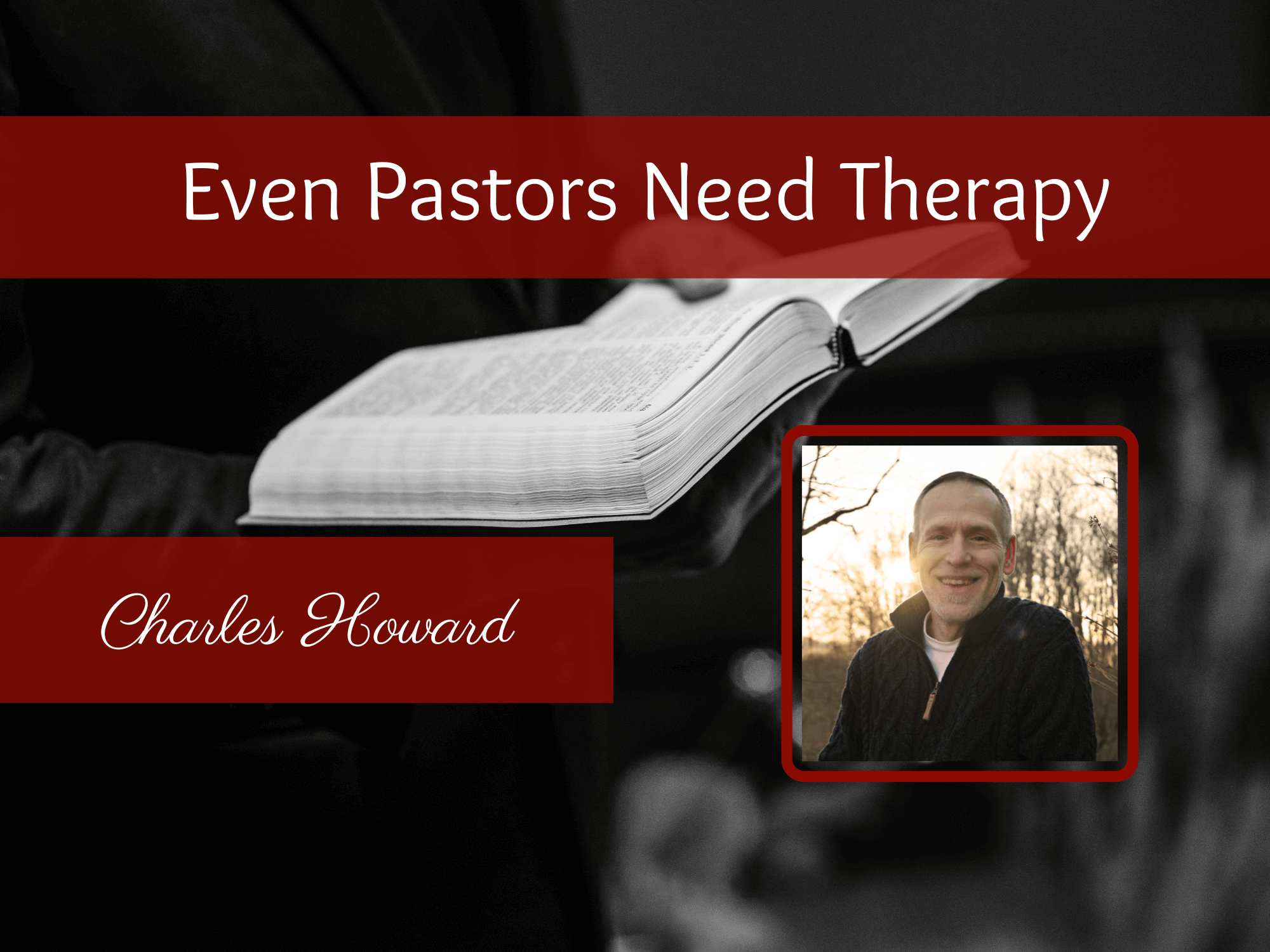It’s easy to forget that the people we look up to have their own hardships. No one has the perfect solution for getting through difficulties when they’re deeply involved in the situation. Pastors, therapists, and other leaders need a unique perspective to get them through their challenges. Pastors need therapy, too.
Charles Howard, Kenosis intern turned full-time therapist, was a vocational minister for 20 years. His heart for serving people continued even after he resigned from pastoral ministry, which is why he decided to become a mental health therapist.
We sat down with Charles to talk about how he brings his unique background into his therapy practice and why it’s important to work with someone through the rough patches in life to reach your goals.
Getting Into Mental Health Therapy
During his time as a vocational minister, Charles was given many opportunities to take part in different types of counseling, such as biblical counseling, crisis care, or advising through common hardships. Although he never wished hardship upon anyone, he was glad to be available to help people through their difficulties. About five years ago, Charles was experiencing hardships of his own. He explains, “Life had thrown some curveballs. I lost a family member and was seeking direction as to where I was going ministry-wise.”
He decided to resign from pastoring but still felt uneasy about where to go in life. Charles remembers, “A wise friend advised me by saying, ‘Sometimes to determine our future, we’ve got to look over our shoulder.‘ I had space to do that, so I got back into what I enjoyed, which was to come alongside people in their challenges.” He realized that serving people and being available during challenging times was his true passion. It became clear that mental health therapy was his next step.
Charles started his journey at Kenosis as an intern. When co-founder Dave Shields offered him a full-time position, he was thrilled. Charles says, “There’s so much I love about Kenosis. We can collaborate and work together. I love how Dave and Christine have been so supportive. I’ve never felt alone on this journey.” He felt connected to Kenosis because he has similar interests and approaches to therapy as Dave and Christine. The two co-founders always make themselves available to offer feedback and encourage Charles as he learns how to be a great therapist.
Charles has worked with many populations throughout his grad school teachings and previous experience as a pastor. He says, “I have a heartbeat for those in ministry, whether their pastors, ministry leaders, missionaries, etc. There are a lot of challenges that come with those vocations. I have empathy for them.” Because of the stigma of pastors needing to appear perfect all the time, they often don’t know where to go for help. Pastors are always available for their congregants and often end up carrying their burdens, but they have their own burdens, too. People in ministry need therapy like anyone else.

Living in Faith
Faith has obviously been a huge part of Charles’ life. He believes every person, whether they are people of faith or not, has intrinsic worth and value. People just need help believing that for themselves and learning how to use their specific superpowers to better the world.
Charles knows this firsthand. “There’s been people along my own journey who have invested in me and saw that I was worthy and had value. When I was in places of struggle or confusion and needed direction, I believed God put those people in my life at the right time to help me.”
People have invested in Charles in various ways, and he hopes that as a therapist, he can be that missing piece for people as they navigate through challenges. Charles comments, “I feel like I’ve received a lot of mercy, kindness, and help along the way, and now I’m able to pay it forward.”

Bringing Collaboration Into Therapy
Charles strives to create an atmosphere where people feel safe, seen, and heard. He listens to their needs and goals, then works with them to create a plan for their specific needs. He explains, “From there, I like being a resource for people. Maybe they are a couple working through counseling, and they get to a point where they satisfy that need. Then they come back with a new challenge or chapter in their lives, and I can be a resource for them.”
As Charles is newer in his therapy practice, some challenges he faces with clients will disappear over time. Right now, he sometimes struggles with his own insecurities as a therapist. He shares, “There are days where a client might leave the office, and I’m just cringing on the inside. I worry I’m getting in the way [of their progress], or they’re feeling invalidated.” When facing internal struggles, Charles goes back to the basics of his counseling skills. He focuses on staying present and working to understand where the client is at emotionally.
Charles remembers a client to whom he struggled getting them to open up to him: “I had a client who was a little more reserved, and it was difficult to draw them out. I felt like they had a messy closet, and they were only going to crack open that closet door (not fully open it). When I offered a challenge or confronted where the client was in the process helped them trust me more and feel safer. So they would open the closet door just a little bit more each time. I’d often feel tension, but we worked through it together. When we got to the end, we met the goals we established together. She gave me this really powerful affirmation of the work we did together in therapy and what she was doing outside the sessions. She goes, ‘This was really hard, but I saw the process. I saw it was making a difference week to week.’ Maybe when I felt the tension of ‘Are we getting anywhere?’ she was recognizing how hard it was, and she kept pressing forward.” Continuing to work through the uncomfortable moments allowed them both to feel successful at the end of their time together.

Charles wants people to know that therapy is for everyone. You don’t have to be diagnosed with a mental disorder or be on medication for a mental illness to go to therapy. It could just be a rough patch you’re going through. When life turns your world upside down, it’s helpful to have a third-party perspective and talk to someone who knows what you’re going through. Charles adds, “I encourage people that when they find themselves living life on life’s terms, that’s a good time to enter therapy.” Life always comes at you to some degree; it’s better to start therapy sooner than later and learn to approach your situation in a healthy way.
“But we have this treasure in jars of clay, to show that the surpassing power belongs to God and not to us.” – 2 Corinthians 4:7 (ESV)

